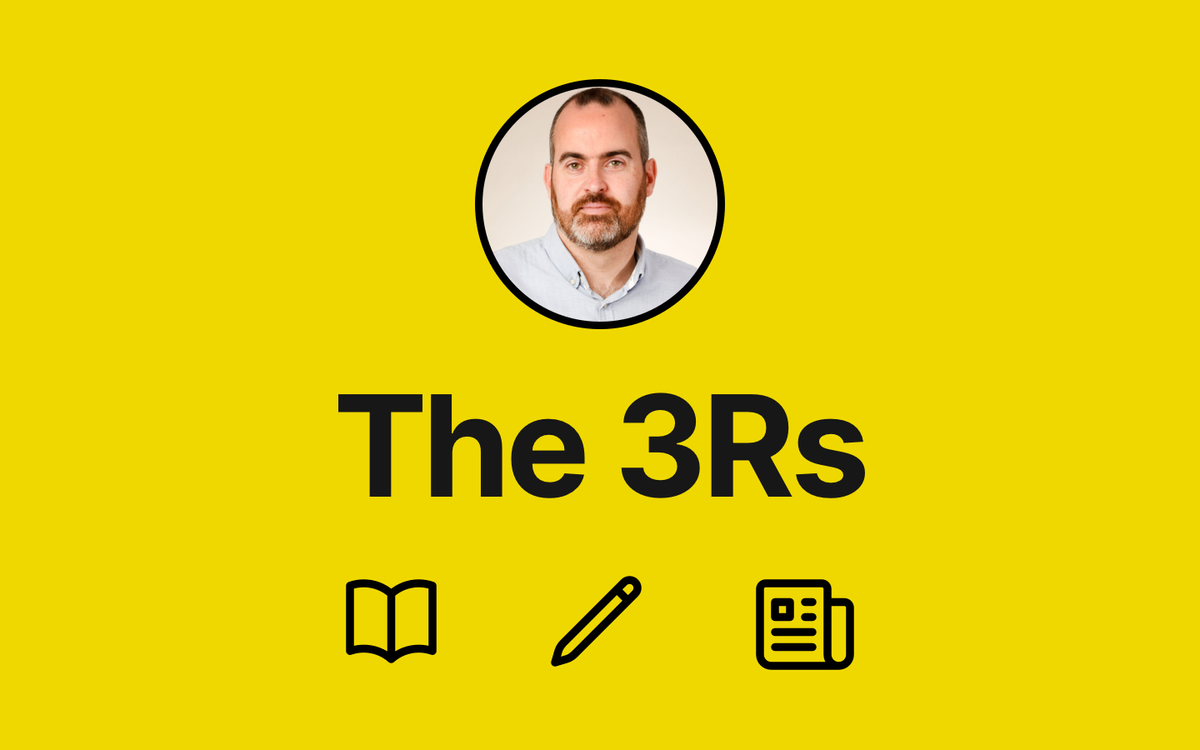As an English teacher I am surely granted the eternal power of an exaggeration fueled headline every once in a while. Ok – so perhaps highlighters aren’t the biggest problem in education, but if you know me well, you may have heard my complaint whereat these gaudy coloured pens symbolize some deep rooted issues with teaching and learning as I see it. For me, highlighters can represent how our habits of teaching and learning can go unexamined and how we can too easily waste time and money each year by not being truly critical about our practice in the classroom.
Let me first be clear. I have spent years with students using them with some guidance that I thought was enough. As a subject leader I have commissioned the purchase of hundreds of packs of highlighters. I have likely inadvertently funded a Stabilo Christmas party drinks tab once or twice. Only in the last couple of years I have been more critical of every facet of my own teaching practice and it leads you to ask broader questions about the efficacy of each teaching method, each tool you employ and each passing fad that attracts your eye (especially if it costs money, however seemingly small the budgetary hit).
Last year I debated the purchase of highlighters for year 11 students as a revision tool. This BBC article that cites the research evidence from Dunlovsky et al. (2013), about the ineffectual impact of highlighters as a revision tool, initiated my critical questioning of this minor, but commonly used tool: Revision: The Good, the Bad and the Useless.
Does such research capture my unique context, with my students? No, not exactly, but it is certainly instructive. Too often, we refuse to change our habits in the classroom, hardened as they are by our routines, using the excuse that we are doing things just fine. In the toil and trouble of the working week, we struggle to evaluate what we do; nor do we honestly share when a strategy or intervention isn’t working.
At least twice last year I wandered around my classroom whilst students were doing some mock exam answers. I had trained them, impeccably in my eyes, to annotate their reading text. I had eschewed highlighters because I was skeptical that they were any use. But still, I walked around the room and highlighters were ubiquitous. I watched for a good period of time one able student bedaubed half her source text with a highlighter in a veritable rainbow of colour, completely of her own accord. Her answer, limited by time, was distinctly average. Where was this learnt behaviour from – she wasn’t sure. Did it enhance the quality of her response – sadly, no.
Soon after this experience, I then encountered this article: subtly entitled ‘Here’s Why Highlighting Doesn’t Actually Help You To Remember Anything‘. The article compares the research evidence that places the revision tool of a flash-card over highlighting in terms of remembering knowledge. It highlights a key point:
“And that’s another reason why we lean on highlighting as a study tool: It feels way better than flash cards. Trying to recall something from memory requires mental straining, which can feel unpleasant, while just rereading a highlighted passage is easy and feels rather good.”
The article also links to this excellent summary of the cognitive science book, ‘Make it Stick’, see here, which presents tried and tested revision strategies that corroborate the Dunlovsky evidence in the BBC article. It eschews highlighting and instead focuses upon revision with based on the concept of ‘deliberate difficulty‘ and approaches like ‘retrieval’, ‘interleaving‘ and ‘elaboration‘ – see the article for a really good summary. Out simply, for revision a flashcard is much more useful than highlighting.
So highlighting looks like good work, it looks just like visible learning, but the more objective evidence states that it is little more than colouring in! When you start questioning the use of highlighters you can receive a great deal of resistance (no doubt this post will be rejected by many). What teacher wants their practice and daily habits drawn into question? But it is exactly that type of questioning of what we do, by ourselves, crucially, but by others too, which will help us develop our practice and become better teachers.
All students are different I hear you say? Each to their own. But we only ever have finite time to train our students. The revision they undertake is moulded by the strategies we teach them. In the limited time we have, should we not be choosing to focus on best bets in terms of what helps students learn?
I have been given feedback by teachers that use highlighters regularly that it is useful for effective organization in MFL; that they work best for lesser able students English; that it makes things stand out more than the humble pen. My question would be: how do you know? I can assure you that I am not certain that the answer will be what I expect, far from it. The research may be poppycock when translated to your setting, but if we won’t know that if we don’t reflect on the evidence and question our methods.
We should test out our methods, and our biases, with some small scale evaluations as regularly as we can. It needn’t take too much time or effort. Not only that, we should test out our assumptions and biases by reading books like ‘Make It Stick‘, by Brown, Roedgiger and McDaniel, ‘How We Learn‘, by Benedict Carey, and ‘Visible Learning: The Science of how we Learn‘, by John Hattie and Greg Yates. The research is readily available online and the likes of Carey have translated it beautifully for every teacher.
Should this research evidence supplant professional judgement? No. Should it inform our decisions and judgment in the classroom? I would argue yes. If we take this critical lens to every tool we use, be they low-fi highlighters, or rather more expensive tablet technologies, then perhaps our learning will see that we implement these tools with something like success.
Ok, maybe I have daubed the highlighter with some biased, exaggerated criticism, but we should be asking challenging questions of our professional judgement and our teaching habits. Simply by undertaking the act of questioning and reflecting upon our practice, we will inevitably move forward.
We have nothing to lose except brightly coloured paper.
[Posted 2015]






Comments